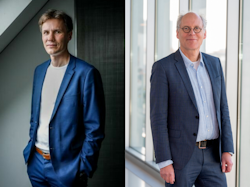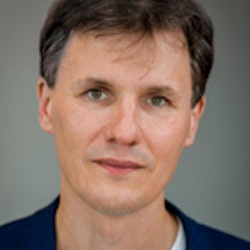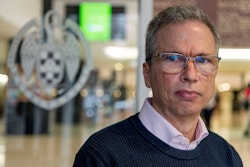Una.Resin comes to an end this month. From a personal point of view, what have you found most impactful about this project?
Jan: For me, the biggest impact Una.Resin has had is that it has paved the way for an R&I strategic vision for the alliance. Una.Resin colleagues have done significant preparatory work, engaging with stakeholders across the alliance on what is feasible to do from an alliance standpoint. From the perspective of the Research Strategy Group, it’s made our job a lot easier because they have laid the necessary groundwork to begin building further. [Explore the achievements of the Una.Resin project.]
Jasper: This complements work that has been undertaken in Una Europa’s 1Europe and Una.Futura projects, like the development of the Self-Steering Committees [researchers from diverse disciplines gathered around six Focus Areas to foster academic collaboration and jointly design innovative educational formats], which are functioning very well, and the Transversal Themes [the alliance’s guiding principles for collaboration]. These are very important because if we don't share common ground as an alliance, it’s very hard to accomplish things together.
Our R&I vision is anchored in 3 strategic objectives. What are they? How do you see them moving from strategy to implementation?
Jan: The three central pillars of our R&I vision are, firstly, to continue to build on our interdisciplinary academic hubs aligned with the Focus Areas. We want to support these as much as possible so they can blossom and continue to grow. One action foreseen surrounds funding: to enable more seed funding and to support academics in sourcing external funding – to help them prepare for grants, pinpoint the right funding channels, and to help them in the proposal writing process – to support them to grow their activities as much as possible.
The second pillar is support and training
for early-career researchers. We feel there is much more we could do together
in this area, to be more aligned with one another across the alliance. This
pillar primarily focuses on joint doctoral research training: organising summer
schools, winter schools, and doctoral workshops to support early-career
researchers.
" I think some researchers feel 'I have my network and I know what I need to drive my field forward'. They don’t consider the opportunities Una Europa could bring them. Be open to Una Europa. Don’t rule out the opportunities the alliance can offer. "
Jan D’hooge
Co-Chair, Una Europa Research Strategy Group
Vice-Rector of Research Policy, KU Leuven
The third pillar is about our research and data infrastructures: to see how we can better share them among the Una Europa partner universities, and how we can make them more open and accessible to researchers across our alliance community.
We are currently building the strategic vision into an action plan. The first proposal on specific actions building towards that strategic vision have been discussed with the chairs of the Self-Steering Committees and coordinators of the Transversal Theme on R&I. By summer 2024, we expect the action plan to be approved by all stakeholders so that we can effectively start tackling this as of August 2024.
Jasper: The academic hubs are central to what we are trying to do. Jan and I believe that empowering the Self-Steering Committees is very important. We should enable them financially but also support them in securing additional funding – an important challenge for every researcher, of course. The Self-Steering Committees need to establish themselves and we need to give them room to do that and stimulate that wherever we can.
Jan: One challenge that remains is to get the buy-in of researchers and others within our institutions. Quite a few people are unaware, or are insufficiently aware, of the fact that they are in an alliance, because it’s relatively new. The alliance is well-known among management at our partner universities, but I think if you go deeper into the organisation, towards the hands-on research, fewer and fewer people know about the alliance and the opportunities it offers. In that respect, I think the academic hubs are really crucial to make it clear for researchers that the alliance will bring value to their own work. There’s a lot of work still ahead of us, but by supporting these academic hubs I really think we can get there.
What are the biggest opportunities for European Universities alliances in R&I? How can Una Europa capitalise on these?
Jan: I think the opportunities in terms of R&I are the ones that I pointed out in our strategic plan. For research to be impactful, we need to bring together the best researchers to solve a given problem. If they fit within a single alliance, then perfect. But most likely they will not fit within one alliance; they will cross alliances and even come from outside of Europe. That's equally valuable. Delivering research within the alliance as if it is a single entity and keeping it there…I don't think that’s what Una Europa should strive for. Rather, we should try to be as efficient as possible by pooling whatever can be pooled to be most effective. And so that brings us to Una Europa’s strategic vision for R&I: we will pool efforts and join forces to stimulate research within certain domains in the alliance, while involving people from outside the alliance.
Jasper: Una Europa partner universities all have huge networks. By working closely together, we can take advantage of each other’s connections. Even European funding is not limited to parties within the European Union: we can make connections to Africa – as our strategy sets out – to the Americas, to Asia. We should stay open.
What message would you like to give researchers across the alliance?
Jasper: I would like to invite researchers to contact the members of the Self-Steering Committee in their discipline, or others who are active in Una Europa at their institution, to discover what opportunities the alliance can offer them – like Una Europa’s upcoming Seed Funding Call.
Jan: I think some researchers feel “I have my network and know what I need to drive my field forward” and don’t consider the opportunities Una Europa could bring them. Be open to Una Europa. Don’t rule out the opportunities the alliance can offer.
Una Europa invites researchers from all disciplines to join us on Monday 11 March as we launch the Una Europa Seed Funding Call 2024.




